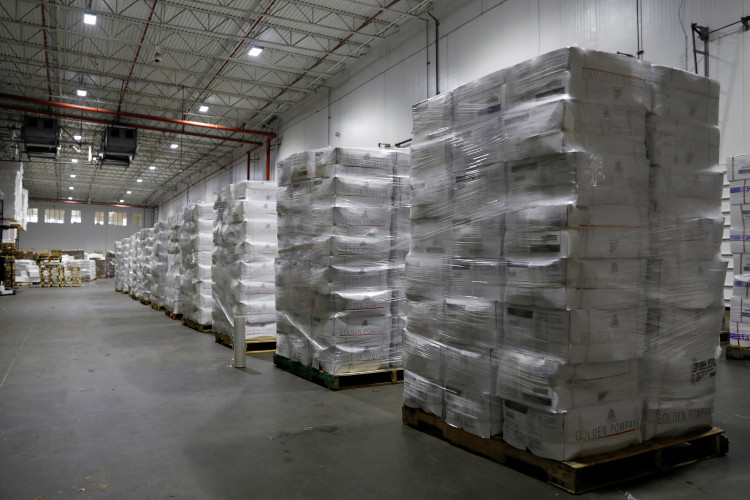U.S. economic growth, which is already exhibiting clear signs of deceleration, will slow down even further if president Donald Trump goes ahead and imposes his threatened 25% tariffs on the remaining imports from China worth more than $300 billion.
Trump is widely expected to pull the trigger on this latest, and most serious, escalation of his trade war against China.
Nomura Securities, which made this assessment, said Tuesday the net impact of Trump's trade war is likely negative for the United States. Lewis Alexander, Nomura's chief U.S. economist, said tariffs collected by the U.S. government are being paid by American firms and consumers, rather than the Chinese as repeatedly -- and falsely -- claimed by Trump.
"And frankly, on the net, it's likely to be a drag on U.S. growth rather than neutral," said Alexander at the Nomura Investment Forum Asia in Singapore.
Alexander said Trump's escalating trade war comes at a time when the U.S. economy is "clearly slowing." He noted "the biggest thing" affecting U.S. economic growth and decisions by the Federal Reserve is how to trade developments affect business confidence and investments in the coming months.
That confidence is being negatively affected by the trade war as can be seen in the sea of red pummeling Wall Street over the past two weeks.
Economists have long said governments collect import tariffs from importers and not from countries, so Trump's tariffs on Chinese goods are typically paid by American importers. China pays no tariffs at all. Unfortunately for U.S. consumers, the cost of those tariffs is passed on to them in the form of higher prices for the imported goods they buy.
Trump has repeatedly the U.S. has collected billions of dollars in tariffs paid by the Chinese, which he says contributes to the strong American economy. Economics experts say that's false and that's not how tariffs work.
Exactly who is hurting from the trade war and by how much remains unclear. On the other hand, research published by the New York Federal Reserve Bank estimates U.S. tariffs on China will cost the typical American household an additional $831 per year.
The already dangerous tensions between the U.S. and China escalated on May 15 when Trump imposed an increase in tariffs to 25% from 10% on $200 billion of Chinese goods. He also threatened to apply 25% tariffs on the remaining imports from China worth around $300 billion over the next few weeks.
China struck back by raising tariffs on $60 billion worth of American imports.






